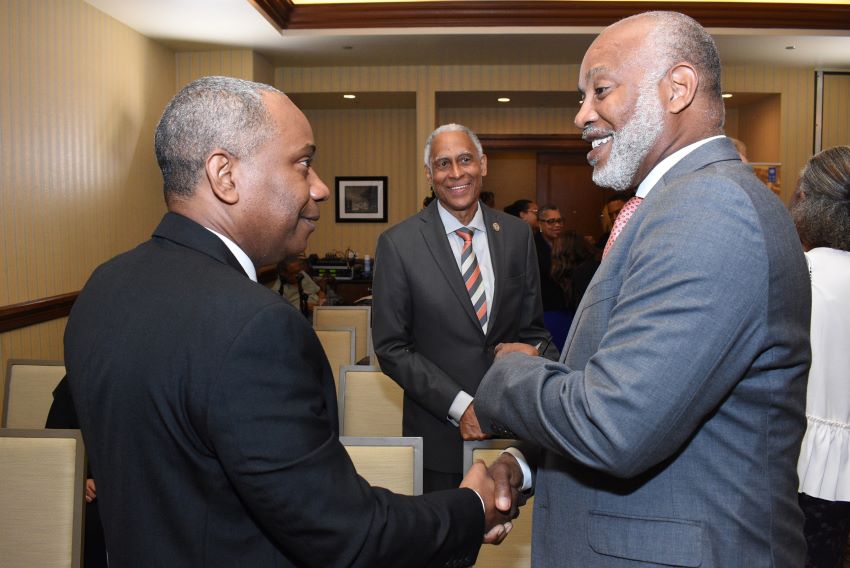
Barbados is one of eight countries that will benefit in reforming their criminal justice systems through the PACE Justice Project.
The project is designed to address crucial challenges in the access to and quality of justice in the region by enhancing the institutional capacities of prosecutors, courts, police and prisons to manage criminal cases effectively and efficiently.
Speaking during the launch of the PACE Justice Project in Barbados, at the Hilton Barbados Resort, Attorney General and Minister of Legal Affairs, Dale Marshall, thanked the European Union for funding the project, which is designed to assist countries in the region reform their criminal justice sectors.
Noting that there was a “burning” need for criminal justice reform, Mr. Marshall said: “An inefficient criminal justice system can rapidly become an ineffective criminal justice system. It costs our people, our businesses, and our tax payers. These costs run deeper than the cost of keeping the system up and running….”
The Attorney General said he hoped the project would be a foundation upon which courts in the region could build, and one that would see a commitment to the orderly development of societies and to the safety and security of citizens.
Mr. Marshall told those present that they were all aware of the effects of an ineffective criminal justice sector.
“You are aware of the implications of an ineffective criminal justice sector on human rights, the perception that the system may be skewed in favour of the criminals, the impact on victims, on witnesses, all leading to a lack of confidence on the ability of the state to govern and manage,” he said.
However, he contended that there was a need to modernise the criminal justice system, particularly in relation to the reduction of backlogs. “This has now become one of the urgent priorities for policymakers at the highest level in our respective countries,” he noted.
Chief Justice of the Eastern Caribbean Supreme Court, Justice Janice Pereira, stated that the PACE Justice Project was conceived from a United Nations Development Programme’s (UNDP) assessment of the justice system of nine nations across the Caribbean.
That assessment, she said, revealed that efficient access to justice was being severely undermined across the region by multiple systemic points of delay within key stages of the criminal justice process.
However, Justice Pereira stated that the project was poised to combat various critical challenges faced by the Caribbean criminal justice sector and would provide much needed developments within the relevant constituent institutions.
“I anticipate this project will expand access to justice while strengthening the rule of law, human rights, and the equitable administration of justice in the Caribbean.
“The PACE Justice Project offers our regions strategic and effective solutions to the outdated … procedures and resources which perpetuate injustice, insecurity, and inequality within our justice system,” she said.
To achieve its objects, the UNDP and partners will develop interventions along three well-defined, but strongly connected dimensions.
Those are: the deployment of enabling technology and systems training to improve efficiency of the criminal justice administration; empowering stakeholders through gender-aware capacity building across all elements of the administration of justice, with a focus on service design and delivery; and strengthening national and regional processes and procedures for improved efficiency and accountability within the justice sector.
Other countries benefitting from the PACE Justice Project are Antigua and Barbuda; Belize; Dominica; Guyana; St. Lucia, St. Kitts and Nevis; and Trinidad and Tobago.
